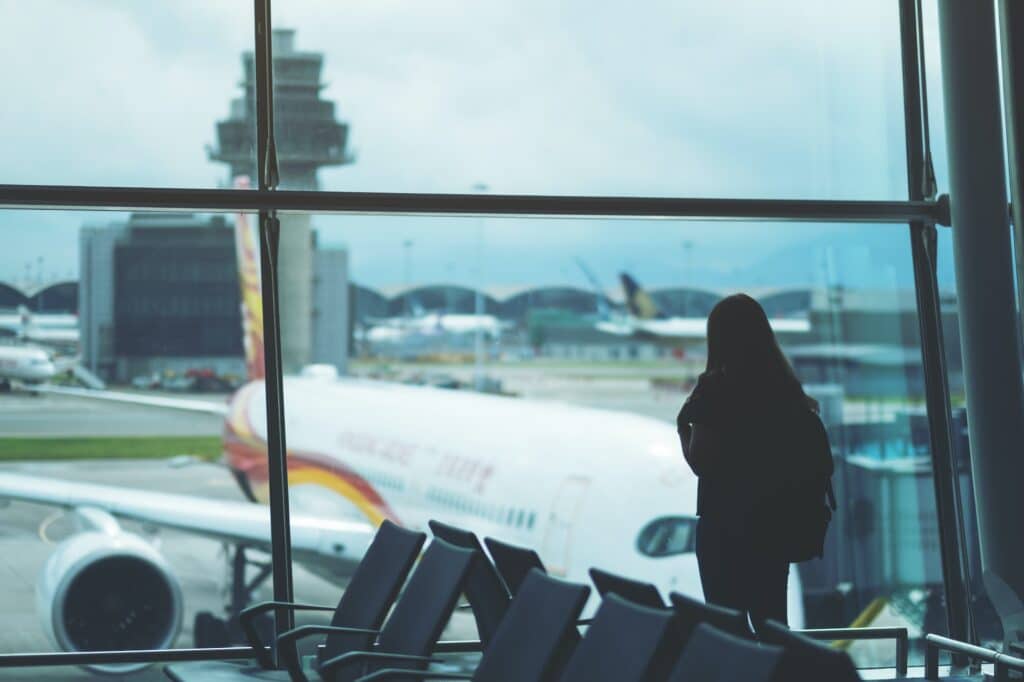Human trafficking is an ever-growing concern for women both domestically and internationally. The Australian Federal Police (AFP) recently released data showing that human trafficking in Australia has increased by 31%, from 224 reports in the 2020-21 financial year to 294 in 2021-22.
According to the United Nations, human traffickers usually use the promise of basic survival needs (such as shelter, food and safety) or the promise of life changing opportunities (relocation, school and money), in exchange for sexual acts. For 51% of victims, economic need creates a vulnerability to being trafficked, a risk that increase with the looming threats of recession and economic downturn.
In the last two years, the pandemic has created an environment where it is even easier for traffickers to lure their victims into danger. When the world turned to the internet to stay connected with friends and family, human traffickers took advantage of this, using new manipulative online tactics to find and traffic victims at a rate never before seen in Australia.
Terrifyingly, the pandemic also correlated with an increase in the number of women who personally knew their trafficker due to the increased financial vulnerability of victims. From a study analysing 233 trafficking cases, it was found that 20% of female victims already had a personal relationship with their trafficker, a high contrast to 0% of male victims.
The rise of human trafficking is an issue that is being increasingly prioritised by the AFP. Still, there are countless ways to help reduce the rate of human trafficking and sexual exploitation of women in Australia and around the world, including donating, educating, advocating, volunteering and speaking out if you see something that doesn’t seem quite right.
100 Women focus on the area of safety for women and girls, and have funded 8 projects since 2014 in this space, including The Freedom Hub based in Sydney and Brisbane.
Sally Irwin, CEO of The Freedom Hub, shared with us a survivor story which was an outcome of the 100 Women grant funding for a Brisbane based service in 2018.
“We had one major ‘rescue’ where a woman had been in slavery, locked up in a house for 15 years. Anorexic, broken bones and very very sick due to mistreatment and daily atrocities by men who came to the house and paid to abuse her. She ran one day when her controller had mistakenly left her unlocked and went to a pharmacy for help who directed her to us. After a lot of work, medical rehab and collaboration with the UN, we now have her safely back in her home country where she can be cared for long term to get well. If we weren’t in Queensland this may never have happened. Private funding is the only way she could be helped because after 15 years she is a ‘ghost’ in our country. No ID, passport, visa, no one knows she exists and most charities/agencies are government-funded so they need identity to help”.
Whilst numbers here in Australia are on the rise, even more shocking is the scale of human trafficking globally. According to the UN’s latest report, in Europe close to 11,839 cases of human trafficking were detected, closely followed by North America, where 9,301 cases were found. For women, these numbers hold a great significance. For every 10 detected cases of human trafficking and modern slavery worldwide, 5 are women (females over the age of 18) and 2 are underage girls. Amongst these, over 70% are trafficked to be used for sexual exploitation. In Australia, according to the AFP’s findings, 138 of the 294 reported cases in 2021-22 were victims of sexual exploitation or forced marriage.
If you think someone may be a victim of human trafficking and slavery, or something is not quite right, call the AFP on 131AFP (131 237).
Signs of trafficking include:
- appearing to be under the control of someone else and reluctant to interact with others,
- not having access to personal identification,
- appearing frightened, withdrawn, or showing signs of physical or psychological abuse,
- having no access or control of their earnings, showing signs their movements are being controlled
Story by Katie Booker.

